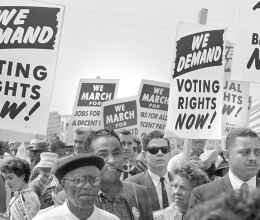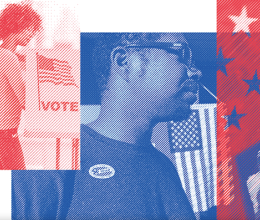On Wednesday, the U.S. Supreme Court will hear an extremely important case, Shelby County v. Holder, that focuses on the constitutionality of the Voting Rights Act. Passed in 1965, the act is one of the most effective and enduring pieces of civil rights legislation in American history. The ACLU intervened in the case on behalf of the Alabama NAACP and several African-American residents whose voting rights are directly impacted by the challenge.
At issue is Section 5 of the Voting Rights Act, which serves as a “discrimination checkpoint” of sorts. It says that state and local governments with a history of racial discrimination in voting must obtain federal clearance before making changes that affect voting. The Department of Justice has repeatedly used Section 5 to block discriminatory voting laws, including in Texas as recently as August of last year.
The provisions of Section 5 have been extended by Congress on four separate occasions, most recently in 2006. Without it, the right to vote for people of color becomes considerably more difficult to protect. Check out our interactive timeline to see how the Voting Rights Act has protected the right to vote since 1965, and continues to do so in light of ongoing restrictive voting laws that target communities of color.
It will likely be several months before we know how the justices will rule, but Wednesday’s oral arguments should provide the first clues. We’ll be watching very closely and we’ll keep you informed when the decision is ultimately handed down.
Voting Rights Act Under Challenge at the Supreme Court
Related Issues
Related content

The Voting Rights Act at 60: A Legacy in Jeopardy, a Democracy at Risk
August 4, 2025
Accessible Voting is Under Attack 35 Years After the ADA
July 26, 2025
2025 Legislative Report: Building a Firewall for Freedom in Maine
July 16, 2025
Weekly Highlights May 5 - 9
May 9, 2025
Weekly Highlights April 28 – May 2
May 2, 2025
Blog: How Donald Trump's Election Lies and Other Anti-Voter...
November 15, 2024
Memo: Trump on Voting Rights
November 13, 2024
Why Counting the Vote Can, and Should, Take Time
November 3, 2024

